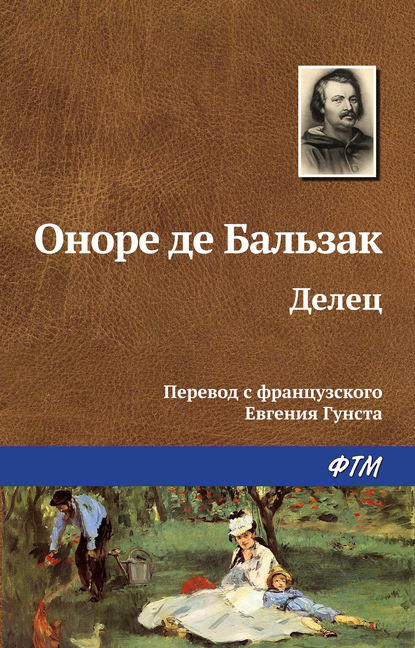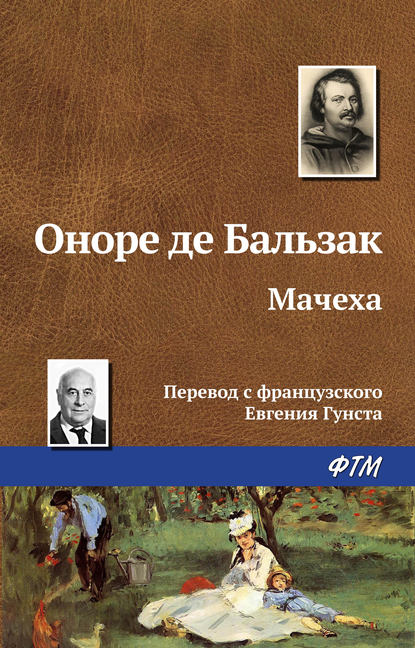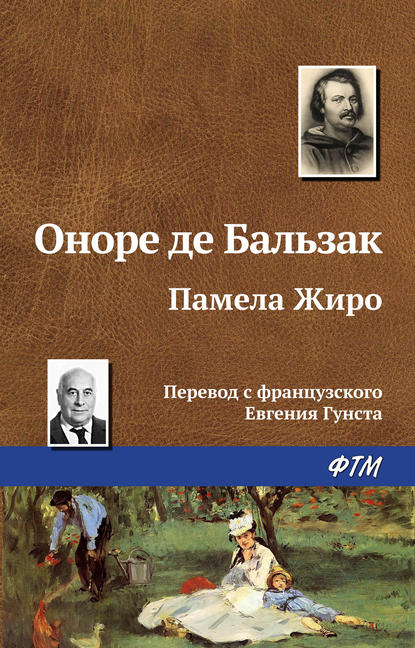
Полная версия
The Duchesse of Langeais
He inquired with gravity how many sisters there were in the convent, and asked for particulars of its endowment and revenues, as if from courtesy he wished to hear the good priest discourse on the subject most interesting to him. He informed himself as to the manner of life led by the holy women. Were they allowed to go out of the convent, or to see visitors?
“Senor,” replied the venerable churchman, “the rule is strict. A woman cannot enter a monastery of the order of St. Bruno without a special permission from His Holiness, and the rule here is equally stringent. No man may enter a convent of Barefoot Carmelites unless he is a priest specially attached to the services of the house by the Archbishop. None of the nuns may leave the convent; though the great Saint, St. Theresa, often left her cell. The Visitor or the Mothers Superior can alone give permission, subject to an authorization from the Archbishop, for a nun to see a visitor, and then especially in a case of illness. Now we are one of the principal houses, and consequently we have a Mother Superior here. Among other foreign sisters there is one Frenchwoman, Sister Theresa; she it is who directs the music in the chapel.”
“Oh!” said the General, with feigned surprise. “She must have rejoiced over the victory of the House of Bourbon.”
“I told them the reason of the mass; they are always a little bit inquisitive.”
“But Sister Theresa may have interests in France. Perhaps she would like to send some message or to hear news.”
“I do not think so. She would have come to ask me.”
“As a fellow-countryman, I should be quite curious to see her,” said the General. “If it is possible, if the Lady Superior consents, if – ”
“Even at the grating and in the Reverend Mother’s presence, an interview would be quite impossible for anybody whatsoever; but, strict as the Mother is, for a deliverer of our holy religion and the throne of his Catholic Majesty, the rule might be relaxed for a moment,” said the confessor, blinking. “I will speak about it.”
“How old is Sister Theresa?” inquired the lover. He dared not ask any questions of the priest as to the nun’s beauty.
“She does not reckon years now,” the good man answered, with a simplicity that made the General shudder.
Next day before siesta, the confessor came to inform the French General that Sister Theresa and the Mother consented to receive him at the grating in the parlour before vespers. The General spent the siesta in pacing to and fro along the quay in the noonday heat. Thither the priest came to find him, and brought him to the convent by way of the gallery round the cemetery. Fountains, green trees, and rows of arcading maintained a cool freshness in keeping with the place.
At the further end of the long gallery the priest led the way into a large room divided in two by a grating covered with a brown curtain. In the first, and in some sort of public half of the apartment, where the confessor left the newcomer, a wooden bench ran round the wall, and two or three chairs, also of wood, were placed near the grating. The ceiling consisted of bare unornamented joists and cross-beams of ilex wood. As the two windows were both on the inner side of the grating, and the dark surface of the wood was a bad reflector, the light in the place was so dim that you could scarcely see the great black crucifix, the portrait of Saint Theresa, and a picture of the Madonna which adorned the grey parlour walls. Tumultuous as the General’s feelings were, they took something of the melancholy of the place. He grew calm in that homely quiet. A sense of something vast as the tomb took possession of him beneath the chill unceiled roof. Here, as in the grave, was there not eternal silence, deep peace – the sense of the Infinite? And besides this there was the quiet and the fixed thought of the cloister – a thought which you felt like a subtle presence in the air, and in the dim dusk of the room; an all-pervasive thought nowhere definitely expressed, and looming the larger in the imagination; for in the cloister the great saying, “Peace in the Lord,” enters the least religious soul as a living force.
The monk’s life is scarcely comprehensible. A man seems confessed a weakling in a monastery; he was born to act, to live out a life of work; he is evading a man’s destiny in his cell. But what man’s strength, blended with pathetic weakness, is implied by a woman’s choice of the convent life! A man may have any number of motives for burying himself in a monastery; for him it is the leap over the precipice. A woman has but one motive – she is a woman still; she betrothes herself to a Heavenly Bridegroom. Of the monk you may ask, “Why did you not fight your battle?” But if a woman immures herself in the cloister, is there not always a sublime battle fought first?
At length it seemed to the General that that still room, and the lonely convent in the sea, were full of thoughts of him. Love seldom attains to solemnity; yet surely a love still faithful in the breast of God was something solemn, something more than a man had a right to look for as things are in this nineteenth century? The infinite grandeur of the situation might well produce an effect upon the General’s mind; he had precisely enough elevation of soul to forget politics, honours, Spain, and society in Paris, and to rise to the height of this lofty climax. And what in truth could be more tragic? How much must pass in the souls of these two lovers, brought together in a place of strangers, on a ledge of granite in the sea; yet held apart by an intangible, unsurmountable barrier! Try to imagine the man saying within himself, “Shall I triumph over God in her heart?” when a faint rustling sound made him quiver, and the curtain was drawn aside.
Between him and the light stood a woman. Her face was hidden by the veil that drooped from the folds upon her head; she was dressed according to the rule of the order in a gown of the colour become proverbial. Her bare feet were hidden; if the General could have seen them, he would have known how appallingly thin she had grown; and yet in spite of the thick folds of her coarse gown, a mere covering and no ornament, he could guess how tears, and prayer, and passion, and loneliness had wasted the woman before him.
An ice-cold hand, belonging, no doubt, to the Mother Superior, held back the curtain. The General gave the enforced witness of their interview a searching glance, and met the dark, inscrutable gaze of an aged recluse. The Mother might have been a century old, but the bright, youthful eyes belied the wrinkles that furrowed her pale face.
“Mme la Duchesse,” he began, his voice shaken with emotion, “does your companion understand French?” The veiled figure bowed her head at the sound of his voice.
“There is no duchess here,” she replied. “It is Sister Theresa whom you see before you. She whom you call my companion is my mother in God, my superior here on earth.”
The words were so meekly spoken by the voice that sounded in other years amid harmonious surroundings of refined luxury, the voice of a queen of fashion in Paris. Such words from the lips that once spoke so lightly and flippantly struck the General dumb with amazement.
“The Holy Mother only speaks Latin and Spanish,” she added.
“I understand neither. Dear Antoinette, make my excuses to her.”
The light fell full upon the nun’s figure; a thrill of deep emotion betrayed itself in a faint quiver of her veil as she heard her name softly spoken by the man who had been so hard in the past.
“My brother,” she said, drawing her sleeve under her veil, perhaps to brush tears away, “I am Sister Theresa.”
Then, turning to the Superior, she spoke in Spanish; the General knew enough of the language to understand what she said perfectly well; possibly he could have spoken it had he chosen to do so.
“Dear Mother, the gentleman presents his respects to you, and begs you to pardon him if he cannot pay them himself, but he knows neither of the languages which you speak – ”
The aged nun bent her head slowly, with an expression of angelic sweetness, enhanced at the same time by the consciousness of her power and dignity.
“Do you know this gentleman?” she asked, with a keen glance.
“Yes, Mother.”
“Go back to your cell, my daughter!” said the Mother imperiously.
The General slipped aside behind the curtain lest the dreadful tumult within him should appear in his face; even in the shadow it seemed to him that he could still see the Superior’s piercing eyes. He was afraid of her; she held his little, frail, hardly-won happiness in her hands; and he, who had never quailed under a triple row of guns, now trembled before this nun. The Duchess went towards the door, but she turned back.
“Mother,” she said, with dreadful calmness, “the Frenchman is one of my brothers.”
“Then stay, my daughter,” said the Superior, after a pause.
The piece of admirable Jesuitry told of such love and regret, that a man less strongly constituted might have broken down under the keen delight in the midst of a great and, for him, an entirely novel peril. Oh! how precious words, looks, and gestures became when love must baffle lynx eyes and tiger’s claws! Sister Theresa came back.
“You see, my brother, what I have dared to do only to speak to you for a moment of your salvation and of the prayers that my soul puts up for your soul daily. I am committing mortal sin. I have told a lie. How many days of penance must expiate that lie! But I shall endure it for your sake. My brother, you do not know what happiness it is to love in heaven; to feel that you can confess love purified by religion, love transported into the highest heights of all, so that we are permitted to lose sight of all but the soul. If the doctrine and the spirit of the Saint to whom we owe this refuge had not raised me above earth’s anguish, and caught me up and set me, far indeed beneath the Sphere wherein she dwells, yet truly above this world, I should not have seen you again. But now I can see you, and hear your voice, and remain calm – ”
The General broke in, “But, Antoinette, let me see you, you whom I love passionately, desperately, as you could have wished me to love you.”
“Do not call me Antoinette, I implore you. Memories of the past hurt me. You must see no one here but Sister Theresa, a creature who trusts in the Divine mercy.” She paused for a little, and then added, “You must control yourself, my brother. Our Mother would separate us without pity if there is any worldly passion in your face, or if you allow the tears to fall from your eyes.”
The General bowed his head to regain self-control; when he looked up again he saw her face beyond the grating – the thin, white, but still impassioned face of the nun. All the magic charm of youth that once bloomed there, all the fair contrast of velvet whiteness and the colour of the Bengal rose, had given place to a burning glow, as of a porcelain jar with a faint light shining through it. The wonderful hair in which she took such pride had been shaven; there was a bandage round her forehead and about her face. An ascetic life had left dark traces about the eyes, which still sometimes shot out fevered glances; their ordinary calm expression was but a veil. In a few words, she was but the ghost of her former self.
“Ah! you that have come to be my life, you must come out of this tomb! You were mine; you had no right to give yourself, even to God. Did you not promise me to give up all at the least command from me? You may perhaps think me worthy of that promise now when you hear what I have done for you. I have sought you all through the world. You have been in my thoughts at every moment for five years; my life has been given to you. My friends, very powerful friends, as you know, have helped with all their might to search every convent in France, Italy, Spain, Sicily, and America. Love burned more brightly for every vain search. Again and again I made long journeys with a false hope; I have wasted my life and the heaviest throbbings of my heart in vain under many a dark convent wall. I am not speaking of a faithfulness that knows no bounds, for what is it? – nothing compared with the infinite longings of my love. If your remorse long ago was sincere, you ought not to hesitate to follow me today.”
“You forget that I am not free.”
“The Duke is dead,” he answered quickly.
Sister Theresa flushed red.
“May heaven be open to him!” she cried with a quick rush of feeling. “He was generous to me. – But I did not mean such ties; it was one of my sins that I was ready to break them all without scruple – for you.”
“Are you speaking of your vows?” the General asked, frowning. “I did not think that anything weighed heavier with your heart than love. But do not think twice of it, Antoinette; the Holy Father himself shall absolve you of your oath. I will surely go to Rome, I will entreat all the powers of earth; if God could come down from heaven, I would – ”
“Do not blaspheme.”
“So do not fear the anger of God. Ah! I would far rather hear that you would leave your prison for me; that this very night you would let yourself down into a boat at the foot of the cliffs. And we would go away to be happy somewhere at the world’s end, I know not where. And with me at your side, you should come back to life and health under the wings of love.”
“You must not talk like this,” said Sister Theresa; “you do not know what you are to me now. I love you far better than I ever loved you before. Every day I pray for you; I see you with other eyes. Armand, if you but knew the happiness of giving yourself up, without shame, to a pure friendship which God watches over! You do not know what joy it is to me to pray for heaven’s blessing on you. I never pray for myself: God will do with me according to His will; but, at the price of my soul, I wish I could be sure that you are happy here on earth, and that you will be happy hereafter throughout all ages. My eternal life is all that trouble has left me to offer up to you. I am old now with weeping; I am neither young nor fair; and in any case, you could not respect the nun who became a wife; no love, not even motherhood, could give me absolution… What can you say to outweigh the uncounted thoughts that have gathered in my heart during the past five years, thoughts that have changed, and worn, and blighted it? I ought to have given a heart less sorrowful to God.”
“What can I say? Dear Antoinette, I will say this, that I love you; that affection, love, a great love, the joy of living in another heart that is ours, utterly and wholly ours, is so rare a thing and so hard to find, that I doubted you, and put you to sharp proof; but now, today, I love you, Antoinette, with all my soul’s strength… If you will follow me into solitude, I will hear no voice but yours, I will see no other face.”
“Hush, Armand! You are shortening the little time that we may be together here on earth.”
“Antoinette, will you come with me?”
“I am never away from you. My life is in your heart, not through the selfish ties of earthly happiness, or vanity, or enjoyment; pale and withered as I am, I live here for you, in the breast of God. As God is just, you shall be happy – ”
“Words, words all of it! Pale and withered? How if I want you? How if I cannot be happy without you? Do you still think of nothing but duty with your lover before you? Is he never to come first and above all things else in your heart? In time past you put social success, yourself, heaven knows what, before him; now it is God, it is the welfare of my soul! In Sister Theresa I find the Duchess over again, ignorant of the happiness of love, insensible as ever, beneath the semblance of sensibility. You do not love me; you have never loved me – ”
“Oh, my brother – !”
“You do not wish to leave this tomb. You love my soul, do you say? Very well, through you it will be lost forever. I shall make away with myself – ”
“Mother!” Sister Theresa called aloud in Spanish, “I have lied to you; this man is my lover!”
The curtain fell at once. The General, in his stupor, scarcely heard the doors within as they clanged.
“Ah! she loves me still!” he cried, understanding all the sublimity of that cry of hers. “She loves me still. She must be carried off…”
The General left the island, returned to headquarters, pleaded ill-health, asked for leave of absence, and forthwith took his departure for France.
And now for the incidents which brought the two personages in this Scene into their present relation to each other.
The thing known in France as the Faubourg Saint-Germain is neither a Quarter, nor a sect, nor an institution, nor anything else that admits of a precise definition. There are great houses in the Place Royale, the Faubourg Saint-Honore, and the Chaussee d’Antin, in any one of which you may breathe the same atmosphere of Faubourg Saint-Germain. So, to begin with, the whole Faubourg is not within the Faubourg. There are men and women born far enough away from its influences who respond to them and take their place in the circle; and again there are others, born within its limits, who may yet be driven forth forever. For the last forty years the manners, and customs, and speech, in a word, the tradition of the Faubourg Saint-Germain, has been to Paris what the Court used to be in other times; it is what the Hotel Saint-Paul was to the fourteenth century; the Louvre to the fifteenth; the Palais, the Hotel Rambouillet, and the Place Royale to the sixteenth; and lastly, as Versailles was to the seventeenth and the eighteenth.
Just as the ordinary workaday Paris will always centre about some point; so, through all periods of history, the Paris of the nobles and the upper classes converges towards some particular spot. It is a periodically recurrent phenomenon which presents ample matter for reflection to those who are fain to observe or describe the various social zones; and possibly an enquiry into the causes that bring about this centralization may do more than merely justify the probability of this episode; it may be of service to serious interests which some day will be more deeply rooted in the commonwealth, unless, indeed, experience is as meaningless for political parties as it is for youth.
In every age the great nobles, and the rich who always ape the great nobles, build their houses as far as possible from crowded streets. When the Duc d’Uzes built his splendid hotel in the Rue Montmartre in the reign of Louis XIV, and set the fountain at his gates – for which beneficent action, to say nothing of his other virtues, he was held in such veneration that the whole quarter turned out in a body to follow his funeral – when the Duke, I say, chose this site for his house, he did so because that part of Paris was almost deserted in those days. But when the fortifications were pulled down, and the market gardens beyond the line of the boulevards began to fill with houses, then the d’Uzes family left their fine mansion, and in our time it was occupied by a banker. Later still, the noblesse began to find themselves out of their element among shopkeepers, left the Place Royale and the centre of Paris for good, and crossed the river to breathe freely in the Faubourg Saint-Germain, where palaces were reared already about the great hotel built by Louis XIV for the Duc de Maine – the Benjamin among his legitimated offspring. And indeed, for people accustomed to a stately life, can there be more unseemly surroundings than the bustle, the mud, the street cries, the bad smells, and narrow thoroughfares of a populous quarter? The very habits of life in a mercantile or manufacturing district are completely at variance with the lives of nobles. The shopkeeper and artisan are just going to bed when the great world is thinking of dinner; and the noisy stir of life begins among the former when the latter have gone to rest. Their day’s calculations never coincide; the one class represents the expenditure, the other the receipts. Consequently their manners and customs are diametrically opposed.
Nothing contemptuous is intended by this statement. An aristocracy is in a manner the intellect of the social system, as the middle classes and the proletariat may be said to be its organizing and working power. It naturally follows that these forces are differently situated; and of their antagonism there is bred a seeming antipathy produced by the performance of different functions, all of them, however, existing for one common end.
Such social dissonances are so inevitably the outcome of any charter of the constitution, that however much a Liberal may be disposed to complain of them, as of treason against those sublime ideas with which the ambitious plebeian is apt to cover his designs, he would none the less think it a preposterous notion that M. le Prince de Montmorency, for instance, should continue to live in the Rue Saint-Martin at the corner of the street which bears that nobleman’s name; or that M. le Duc de Fitz-James, descendant of the royal house of Scotland, should have his hotel at the angle of the Rue Marie Stuart and the Rue Montorgueil. Sint ut sunt, aut non sint, the grand words of the Jesuit, might be taken as a motto by the great in all countries. These social differences are patent in all ages; the fact is always accepted by the people; its “reasons of state” are self-evident; it is at once cause and effect, a principle and a law. The common sense of the masses never deserts them until demagogues stir them up to gain ends of their own; that common sense is based on the verities of social order; and the social order is the same everywhere, in Moscow as in London, in Geneva as in Calcutta. Given a certain number of families of unequal fortune in any given space, you will see an aristocracy forming under your eyes; there will be the patricians, the upper classes, and yet other ranks below them. Equality may be a right, but no power on earth can convert it into fact. It would be a good thing for France if this idea could be popularized. The benefits of political harmony are obvious to the least intelligent classes. Harmony is, as it were, the poetry of order, and order is a matter of vital importance to the working population. And what is order, reduced to its simplest expression, but the agreement of things among themselves – unity, in short? Architecture, music, and poetry, everything in France, and in France more than in any other country, is based upon this principle; it is written upon the very foundations of her clear accurate language, and a language must always be the most infallible index of national character. In the same way you may note that the French popular airs are those most calculated to strike the imagination, the best-modulated melodies are taken over by the people; clearness of thought, the intellectual simplicity of an idea attracts them; they like the incisive sayings that hold the greatest number of ideas. France is the one country in the world where a little phrase may bring about a great revolution. Whenever the masses have risen, it has been to bring men, affairs, and principles into agreement. No nation has a clearer conception of that idea of unity which should permeate the life of an aristocracy; possibly no other nation has so intelligent a comprehension of a political necessity; history will never find her behind the time. France has been led astray many a time, but she is deluded, woman-like, by generous ideas, by a glow of enthusiasm which at first outstrips sober reason.
So, to begin with, the most striking characteristic of the Faubourg is the splendour of its great mansions, its great gardens, and a surrounding quiet in keeping with princely revenues drawn from great estates. And what is this distance set between a class and a whole metropolis but visible and outward expression of the widely different attitude of mind which must inevitably keep them apart? The position of the head is well defined in every organism. If by any chance a nation allows its head to fall at its feet, it is pretty sure sooner or later to discover that this is a suicidal measure; and since nations have no desire to perish, they set to work at once to grow a new head. If they lack the strength for this, they perish as Rome perished, and Venice, and so many other states.
This distinction between the upper and lower spheres of social activity, emphasized by differences in their manner of living, necessarily implies that in the highest aristocracy there is real worth and some distinguishing merit. In any state, no matter what form of “government” is affected, so soon as the patrician class fails to maintain that complete superiority which is the condition of its existence, it ceases to be a force, and is pulled down at once by the populace. The people always wish to see money, power, and initiative in their leaders, hands, hearts, and heads; they must be the spokesmen, they must represent the intelligence and the glory of the nation. Nations, like women, love strength in those who rule them; they cannot give love without respect; they refuse utterly to obey those of whom they do not stand in awe. An aristocracy fallen into contempt is a roi faineant, a husband in petticoats; first it ceases to be itself, and then it ceases to be.












